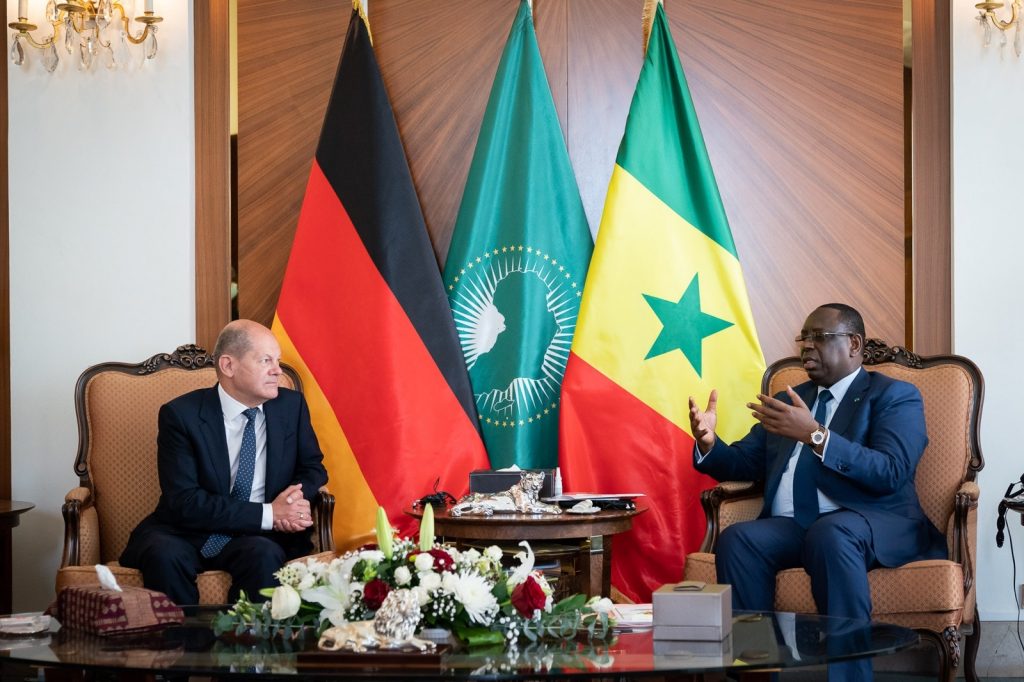
German Chancellor Olaf Scholz visited Senegal for the first time since he became Chancellor and was received by Senegalese president Macky Sall at the Leopold Sedar Senghore International Airport in Dakar. The aim of the visit, according to Seneweb, is to strengthen the cooperation between Africa and the Federal Republic of Germany.
The President of Senegal was the first host of the chancellor and the topic on the agenda between the two leaders was centred on economic issues and those related to security.
Scholz was accompanied by a high-powered delegation as he stepped foot, for the firs time, in the African country since his election. His delegation composed of experts in several fields including energy. Olaf Scholz pointed out that his objective was to establish a partnership on the energy level with Senegal, a country that will soon be a gas producer.
This meeting, which was being held just over a year before the first phase of Senegalese gas production, is a good opportunity for Germany to explore the possibilities of partnership with Senegal.

READ MORE: 11 newborns die in a fire accident in Tivaoune, Senegal
Senegalese footballer Idrissa Gueye refuses to wear rainbow PSG shirt, faces homophobia accusations
President Macky Sall stated, “Senegal is ready to work with a view to supplying the European market with liquefied gas”, but “under better conditions than those currently offered to Senegal by other companies”, he explained.
Scholz undertook to do what was necessary “by looking into the matter further with the technicians”. Regarding the energy transition, Germany has also committed to supporting African countries, including Senegal.
A photovoltaic power plant will be inaugurated. As the result of Senegalese-German cooperation, this project aims to supply nearly 33,000 households with electricity. It will also allow “the State of Senegal through Senelec to generate savings estimated at 2.5 million euros per year compared to a thermal power plant using fuel oil”, according to a press release quoted by RFI.
By: Bakary Ceesay
